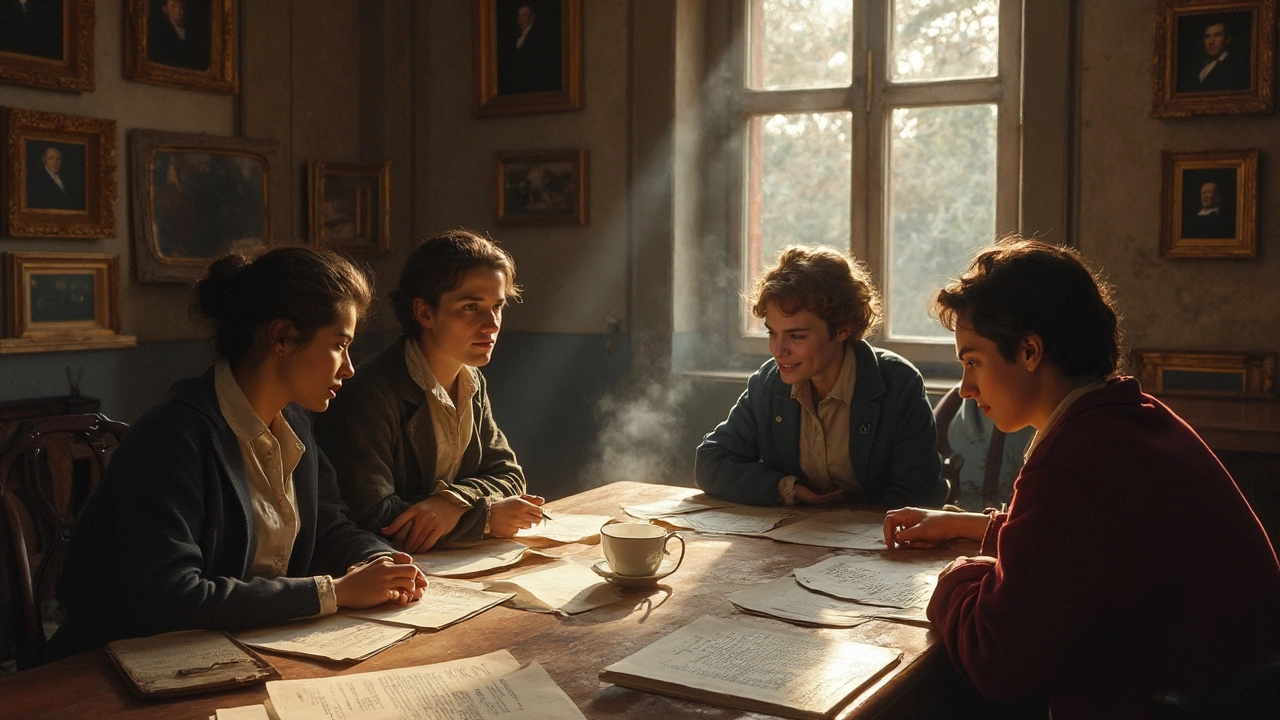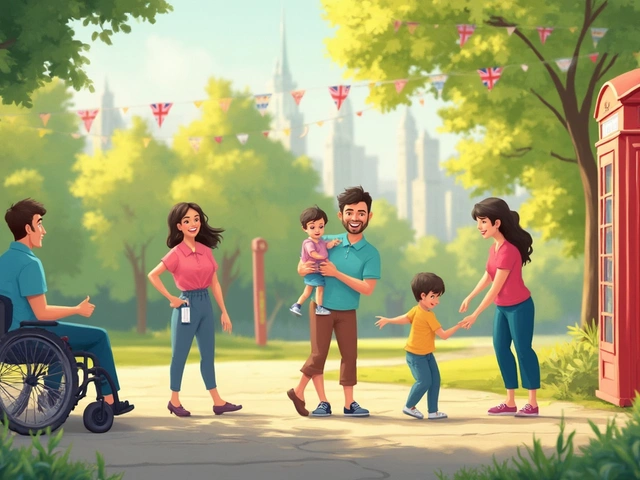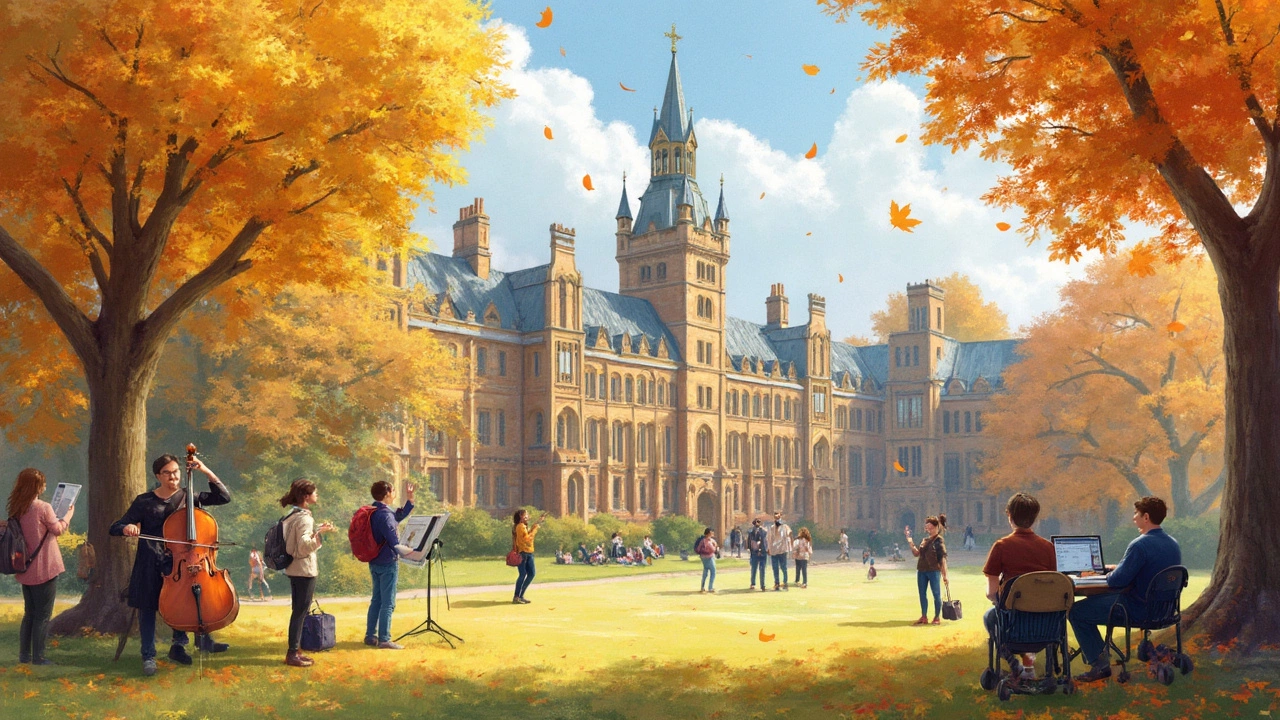Think you need to be a straight-A student to snag a scholarship? Hold on! While top grades can open doors, they're not the only key to getting financial aid for college. Many believe scholarships are reserved for the academic elite, but that's only part of the picture.
Scholarship committees are increasingly looking at the whole package. They want individuals who stand out not just in tests but in life. So, let's talk about what else counts when you're applying for scholarships.
Sure, academics are crucial, but think about your extracurricular activities, volunteer work, and unique talents. These elements can paint a vivid picture of who you are beyond the GPA. Scholarships exist for athletes, artists, volunteers, and even video game pros! Crazy, right?
And don't forget the power of a killer personal statement. It's your chance to tell your story, your struggles, and your victories. Show your passion and make them see why investing in you makes sense.
While we're at it, let's demystify recommendation letters. Strong letters from mentors who genuinely know you can tip the scales in your favor, even if your grades aren't perfect.
- The Myth of Straight A's
- Holistic Approach to Applications
- Importance of Extracurricular Activities
- Nailing the Personal Statement
- The Role of Recommendation Letters
- Exploring Alternative Scholarships
The Myth of Straight A's
There's a common belief that scholarships are entirely reserved for straight-A students. Sure, having stellar grades can be helpful, but they're far from the only factor scholarship committees consider. In reality, it's a mix of qualities and achievements that makes an application stand out.
Many scholarship offerings prioritize more than just academic performance. They look for the unique story each applicant brings. For instance, some scholarships target students pursuing specific fields of study, showing active interest or commitment to those areas, regardless of perfect grades.
Beyond GPAs
When it comes to understanding what makes a scholarship application compelling, consider this: a student with a 3.5 GPA and extensive leadership experience can be just as attractive as a 4.0 student without these experiences. Colleges and financiers are on the lookout for well-rounded individuals who show potential beyond grades.
In 2023, a survey found that about 50% of scholarship programs rated leadership experience and community involvement as 'very important' in their decision-making process, alongside academic performance. It's clear there's a broader focus when it comes to awarding financial aid.
The Power of Passion
If you're passionate about a specific cause or talent, showcasing this in your application can be incredibly impactful. There are even scholarship opportunities specifically for athletes, artists, and innovators. These look beyond academic achievements and value dedication and talent in various fields.
So, if you ever catch yourself stressing about not being the top of your class, remember: there's a wide world of scholarships that value the whole you, not just the report card numbers. Your unique experiences and passions might just be your greatest assets.
Holistic Approach to Applications
Ever heard of the holistic approach when it comes to applying for scholarships? It's about looking at the whole person, not just their academic achievements. Committees, especially those offering competitive scholarships, want to see a snapshot of your life, showcasing various achievements, talents, and life experiences.
First off, let's discuss what goes beyond the letter grades. They include:
- Extracurricular activities: Were you the soccer team's captain? Did you spend weekends volunteering? These add a lot of value to your application.
- Unique personal achievements: Maybe you started a small business or won a local art competition. Highlight these moments!
- Diverse interests: Showing that you're multifaceted can be a big plus. Not everyone knows how to play the guitar while coding apps at night.
Sharing Your Story
Scholarship applications often include a personal statement. This is your stage! Tell them who you are, what drives you, and why it matters. Be honest but strategic. Focus on your passions and aim to connect those dots to your future goals.
Stats Can Help!
Here's a bit of known data to bring this to life:
| Factor | Percentage Considered |
|---|---|
| Academic Performance | 40% |
| Extracurricular Involvement | 30% |
| Personal Statement | 20% |
| Letters of Recommendation | 10% |
These numbers remind us that while academics play a big role, about 60% of what matters is beyond your GPA. So, dive into that holistic view and let it guide how you approach your scholarship applications.
Importance of Extracurricular Activities
Ever wonder why extracurricular activities matter so much? Well, they’re your golden ticket to show scholarship committees that you’re more than just numbers and letters on a report card. Being involved in clubs, sports, or even community service can dramatically boost your application. Let's see why.
Demonstrating Leadership and Initiative
First up, extracurriculars are a chance to step up as a leader. Did you organize a charity event or lead your soccer team to victory? These experiences highlight your leadership skills and ability to take initiative, something scholarships love to see because it indicates potential future success.
Showcasing Your Passions
Extracurriculars also help showcase what you’re passionate about. Whether it’s the drama club, a tech group, or volunteer work, these activities tell your story. They show what you care about and what drives you beyond academics. And, believe it or not, unique hobbies can make you stand out!
| Activity Type | Scholarship Link |
|---|---|
| Sports | Access to athletic scholarships |
| Community Service | Opportunities in public service scholarships |
Building Essential Skills
Skills like teamwork, time management, and problem-solving often develop through extracurriculars. Participating in a debate club or playing in a band teaches you juggling multiple responsibilities—all valuable skills that scholarship committees recognize.
Networking Opportunities
And let's not forget networking! It’s a big deal. You’ll meet all sorts of folks through these activities—mentors who can write those glowing recommendation letters and peers who might become your future business partners.
In short, extracurricular activities are a crucial element in the scholarship equation. They flesh out your application and make it relatable, so dive in and make the most of what interests you!

Nailing the Personal Statement
Your personal statement is the heart of your scholarship application and a golden opportunity to showcase who you are beyond numbers and scores. It's your space to grab the committee’s attention, spark their interest, and make your case for why they should invest in you. But how do you do it?
Start with Your Story
Everyone loves a good story. Begin with a compelling narrative that illustrates your journey and highlights what makes you unique. Whether it's a memorable event that shaped your aspirations or a challenge you've overcome, make sure it's something meaningful. This is your chance to shine and let your personality jump off the page.
Make it Relevant
It's crucial to align your statement with the specific scholarship's values and requirements. If the scholarship emphasizes leadership, focus on roles or experiences where you've taken charge. If it's about community service, dive into projects or initiatives you've led. Tailoring your content shows you've done your homework and genuinely fit the bill.
Clear and Concise
Long-windedness is not your friend here. Be concise and to-the-point. Committees have tons of applications to sift through, so clarity is key. Use simple language to communicate your ideas effectively, avoiding fluff. It ensures your message isn’t lost in unnecessary details.
It’s All About the Impact
Highlight the impact of your actions. Instead of just listing achievements, explain the difference you made. What changed because of you? Did you help improve your school’s community garden, or maybe start a peer tutoring group improving grades by 30%? Results speak volumes.
Proofread Like a Pro
Read, re-read, and then read it again. Typos can seem minor but might suggest carelessness. Asking a teacher or mentor to review your statement can provide valuable feedback and catch errors you might have missed. This is one place where a second opinion is golden.
Remember, a great personal statement doesn't just tell—it sells. It's your ticket to setting yourself apart in a sea of applicants and securing that much-needed funding for your future.
The Role of Recommendation Letters
Recommendation letters can seriously boost your scholarship application far beyond those straight A's. They add a personal touch and let the committee hear from someone who's seen you in action.
The first thing you need is to pick the right people to write these letters. Go for teachers or mentors who can genuinely speak to your skills and personality. They know you best, whether it’s in academics, sports, or any other realm.
What Makes a Stellar Recommendation?
Great recommendation letters focus on specific examples. Vague praise doesn't cut it. If your mentor can share how you led a project or showed resilience, that's gold. It makes your achievements concrete.
Talk to your recommenders beforehand. Share what you'd like them to mention, maybe an experience or a skill you're particularly proud of. This guidance can help them write something more tailored and impactful.
The Logistics of Requesting Recommendations
Timing is everything. Don’t wait till the last minute. Give your recommenders at least a month to craft their letters. It shows respect for their time and ensures they aren’t rushing through it.
And don’t forget to follow up. A gentle reminder here and there doesn’t hurt. Plus, expressing gratitude after they’ve submitted the letter shows maturity and leaves a positive impression.
- Pick the right people
- Ensure specificity
- Communicate your achievements
- Respect timelines
- Follow up and thank them
Do Letters Really Matter That Much?
In a nutshell, yes. According to a survey by the National Association for College Admission Counseling, about 56% of colleges consider recommendation letters to be moderately to considerably important in their decision process. So, they really can make a difference in landing that scholarship.
| Factor | Importance |
|---|---|
| Grades | High |
| Recommendation Letters | Moderate to High |
| Extracurriculars | High |
So, while academic achievements are significant, don't underestimate the power of a well-crafted recommendation. They offer a glimpse into your character and potential, helping scholarship committees see the real you beyond numbers.
Exploring Alternative Scholarships
Did you know that there are tons of scholarships out there that don't hinge on having straight A's? Yup, it's true! There are opportunities for all kinds of students, from those with unique hobbies to those passionate about their community. Finding these can be a game-changer for your financial situation.
One of the coolest things about alternative scholarships is that they focus on different aspects of who you are. Let's break some of them down:
Merit-Based but Non-Academic Scholarships
Okay, so maybe you aren't at the top of your class, but what about your talents? There are scholarships for musicians, athletes, debaters, and even video gamers. Showcasing your passion and commitment in any extracurricular can merit financial support. So, brush up that portfolio or highlight those sports achievements!
Community Service Scholarships
Having a heart for volunteering can pay off—literally. A lot of organizations value community work and offer scholarships for students who dedicate their time to making a difference. This means weekend beach clean-ups or mentoring younger kids might just land you a scholarship.
Niche Scholarships
Ever thought about scholarships for left-handed students? Or maybe ones for someone with a passion for UFOs? Seriously, these specific scholarships do exist. They might not be widely known, but niche scholarships give a fair chance for those who fit their unusual criteria. A few hours of research can lead to quite the discovery.
Industry-Specific Scholarships
Many industries aim to support the next generation in their field. Tech companies, for example, offer scholarships to budding programmers and engineers. Likewise, art schools might support young artists. This is a great way to tie your education to your career goals.
| Type of Scholarship | Example |
|---|---|
| Non-Academic | Gaming and Esports |
| Community Service | Coca-Cola Scholars Program |
| Niche | National Potato Council Scholarship |
| Industry-Specific | Google Scholarship for Computer Science Students |
So, when searching for scholarships, remember to think outside the classroom. Not every opportunity is about academic brilliance; sometimes, it's a unique interest or a commitment to bettering the community. Discover the scholarships that fit your profile, and you might just find support where you didn't expect it!






